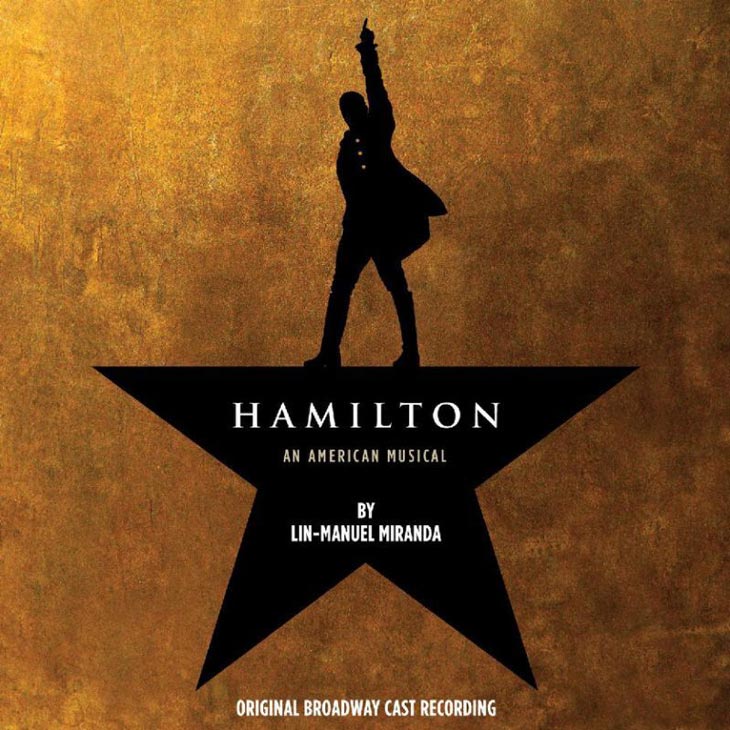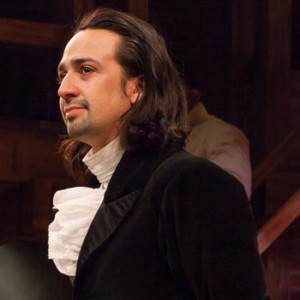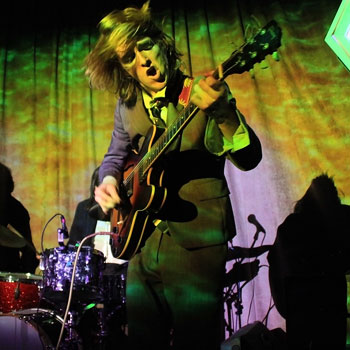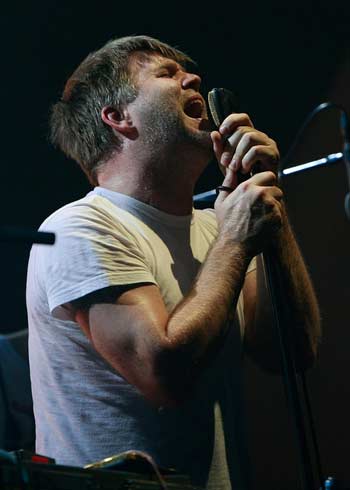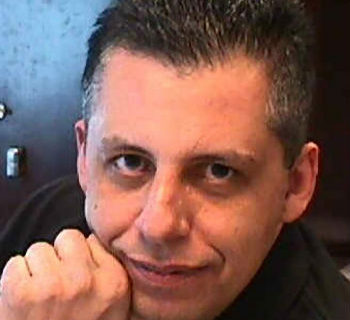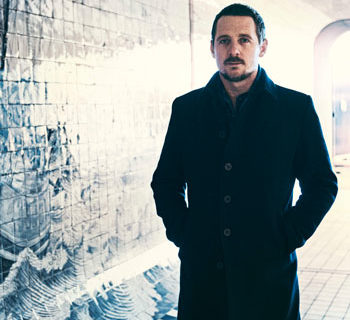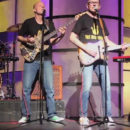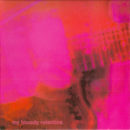Hamilton an American Musical
To paraphrase Aaron Burr: How does a two-hour long, 46-song, hip-hop musical about the Founding Fathers, constitutional politics, and the birth of the United States become an enormous pop phenomenon?
The answer is simple: by being concise. Yeah, you heard me. While I have not had the good fortune of selling a child into slavery to see the Broadway production––of which Alexander Hamilton would strongly disapprove––I have had the immense pleasure of obsessively listening, singing, and dancing to the original cast recording for Hamilton: An American Musical.
There are about 5 million concrete reasons why this soundtrack works, and they go beyond the 5 million rhymes squeezed in by composer, lyricist, and star Lin-Manuel Miranda. The music is top-notch and wonderfully produced by The Roots. The actors, from Leslie Odom Jr. as Aaron Burr, to Daveed Diggs as Marquis de Lafayette/Thomas Jefferson, to the Schuyler Sisters, are at their best. The story is engaging: from sweeping war sequences to intimate moments of heartbreak––and yes, cabinet debates––everything is compelling and easy to understand while also complex as all hell. Everything about the production itself is wonderful, but that’s not why it works so goddamn well.
No, concision of theme, a strict adherence to storytelling, and musical restraint are what make Hamilton one of my favorite albums of 2015, and quite possibly one of the most personally influential albums I’ve ever listened to.
The musical operates on one central thematic axis: time. Every piece of this grandiose puzzle is in some way tied to that one idea. The primary binary opposition between Hamilton and Burr reflects the two characters’ polar opposite understandings of opportunity and how to live. Hamilton represents carpe that fucking diem, and Burr, waiting and restraint. Their extremely different approaches to life, which belie their similar desires, establish them perfectly as protagonist and antagonist.
When I listen to Hamilton shooting the shit with his friends or loving his wife and child, when I hear Washington stressing the fuck out over everything, or Thomas Jefferson being an asshole, I see myself in it.
In line with this thematic cohesion, the narrative is concise: Act One and Act Two are perfect mirrors of each other narratively, almost to a track. For example, “Alexander Hamilton” and “What’d I Miss” both introduce a character coming to America to start shit. In Act One it’s our hero, emerging from poverty to make a name for himself. In Act Two, it’s Thomas Jefferson coming from France to be the main antagonist to Hamilton.
Finally, Hamilton is musically concise. Though it’s packed to the brim with music, lyrical and musical motifs reappear throughout the play and keep the expansive soundtrack grounded. Whether it’s the lines “I’m not throwing away my shot,” “he will never be satisfied,” or “the world will never be the same; the Schuylers’ drumbeat leitmotif; or the strings line for narration, tiny modular motifs are scattered liberally throughout the musical. We always have a sense of place and we always know where we are. Each song hews closely to a single narrative function and movement, which allows the music to be expansive while staying conceptually restrained.
The effect of this concision is enormous emotional resonance and a wide palette to explore. When I listen to Hamilton shooting the shit with his friends or loving his wife and child, when I hear Washington stressing the fuck out over everything, or Thomas Jefferson being an asshole, I see myself in it. By keeping the narrative and musical elements digestible and giving a pop flavor to the music, Hamilton’s characters and story become human, modern, and relevant. Characters who seem dry and distant in history textbooks take on a startling new life, and we learn what has changed in 270 years and what hasn’t. Because it engages with profoundly elemental ideas, Hamilton is able to weave a complex thematic tapestry without losing its audience or compromising its entertainment value.
Which brings me to … me. Last year, a good friend told me I would enjoy musicals, but after trying a few, I found them not to my taste. However, after listening to Hamilton obsessively, reading up on Hamilton and finding a kindred spirit, and putting into practice his and Miranda’s nonstop lyrical sensibility, I found myself with a workable idea for a musical that I am actively developing, and a love for musical theater that transcends this one show.
I owe my passion to Hamilton, and inspiring passion in an audience is a hell of a thing for any work of art to do. I don’t say this often, but: listen to this album.
Until I turn the world upside down,
10,000 out of 10,000 Rawckus Kung Fu Throwing Stars

